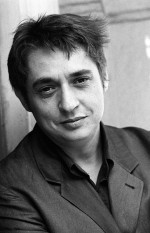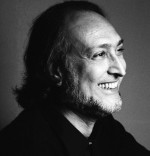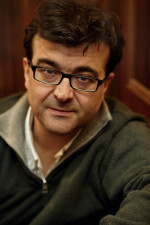Writers and Barcelona
Barcelona has been and keeps being a perfect scene for literary works, a source of inspiration for writers who were born here and a welcoming place for writers from around the world who have described it in their books.
Writer and literary critic, he has a degree and PhD in Humanities from Pompeu Fabra University in Barcelona (where he lectures). He also teaches at the Barcelona Ateneu School of Writing, and is academic coordinator and lecturer on the Master in Literary Creation at IDEC-UPF. He is author of the novels Ene (2001), Los muertos (2010), Los huérfanos (2014) and Los turistas (2015) and the essays Librerías (2013) and Barcelona. Libro de los pasajes (2017).
With a long professional career as a diplomat, he has published many books, starting in 1987 with Tap d’escopeta. More titles by him: La puresa del porc(1990), Diumenge de temptació (2001), Kuala Lumpur (2005), L’últim home que parlava català (Premi Ramon Llull 2009), Un escàndol sense importància (2011), El melic del món (2013) y Retorn (2017), on the relationship between the poet Josep Carner and Catalonia.
Writer and explorer, he is author of the memoirs Histoire de ma vie. In this work, the author describes European social life in the eighteenth century, and writes about his time in Barcelona in 1768 where he was taken prisoner.
He is one of the most recognized Catalan poets of his generation. He is author of an extensive work of poetry combining the traditional oral work of the late Middle Ages with surrealism and the counterculture movement. His work includes Tots al carrer (1992), D'equivocar-se així (1997), Uh (1997) and Plaça Raspall (1998), the name of a plaza in the Gràcia district. He also published the narratives El poble del costat (2008) and La foneria i el paper (2010), theatre production Do'm (2008) and translated several books from English, French, and Italian, into Catalan.

A writer, he was winner of the Nadal Prize in 2008 for his latest novel Lo que sé de los vampiros (2008). In his triology El dia del Watusi (published in three volumes between 2002 and 2003) he makes an in-depth account of Barcelona during the Spanish transition and following years. Elevación, elegancia y entusiasmo (2009) reflects his essay work and his contributions to the press.

Literary critic and editor, he played a major part in the Catalan publishing world during the second half of the twentieth century. He was one of the founders and first President of the Catalan Language Writers’ Association. Between1964 and 1996 he was editorial director at Edicions 62. Author of an extensive work of prose and essay, some of his most prominent work includes L'hora del lector (1957), the anthology Nueve novísimos poetas españoles (1970), Josep Pla o la raó narrativa (1978) and his autobiographies written in Els escenaris de la memòria (1988).
A writer and journalist, she graduated in Communication Sciences from the Autonomous University of Barcelona, where she lectures. She has been teaching at the School of Writing at the Barcelona Ateneu since 2010, and is a regular contributor to media such as Barcelona Televisió, TV3, Catalunya Ràdio, COM Ràdio, the newspaper Avui and magazines Cosmopolitan, National Geographic, Sàpiens and Time Out. In 2012, she wont the Sant Joan writing prize for her work Pura sang, set in Minorca and Barcelona.
A writer and journalist, at the end of the seventies and during the eighties of the twentieth century, he participated actively in politital, social, and counterculture movements in Barcelona. La Vall d'Hebron, El Coll and Can Baró are some of the regular settings for his poetic and narrative work. He is the author of books such as El cel de l’infern (1999), El pont de Mühlberg (2000) and El mar de la tranquil·litat (2010). He has been directing the Barcelona Poetry Festival for over ten years

Considered as one of the most prominent contemporary Spanish writers, he is PhD in Spanish Philology. Taught at the University of Illinois and at the University of Girona. After publishing the novels El móvil (1987), El inquilino (1989) and El vientre de la ballena (1997), in 2001 he published Soldados de Salamina (Salamina Soldiers) with which he obtained a wide critical and readers acclaim, both nationally and internationally. The novel is awarded the Llibreter and Salambo prizes that same 2001 and some prestigious International prizes such as the Grinzane Cavour, in Italy. On 2003, there was a cinematographic adaptation by David Trueba. After, more best-sellings titles would come: La velocidad de la luz (2005), Anatomía de un instante (2009), El impostor (2014) and El monarca de las sombras (2017). He publishes regularly with El País journal.

Considered one of the most prominent and influential writers of universal literature, in 1605 he published the first part of his major work, The Ingenious Gentleman Don Quixote of La Mancha. In the year 1615, in the second part of this work, Cervantes makes, through the words of Don Quixote, one of most significant tributes to the city of Barcelona. In A Story of Two Damsels (1614), one of the author’s most exemplary works, Cervantes also speaks highly of the city.



